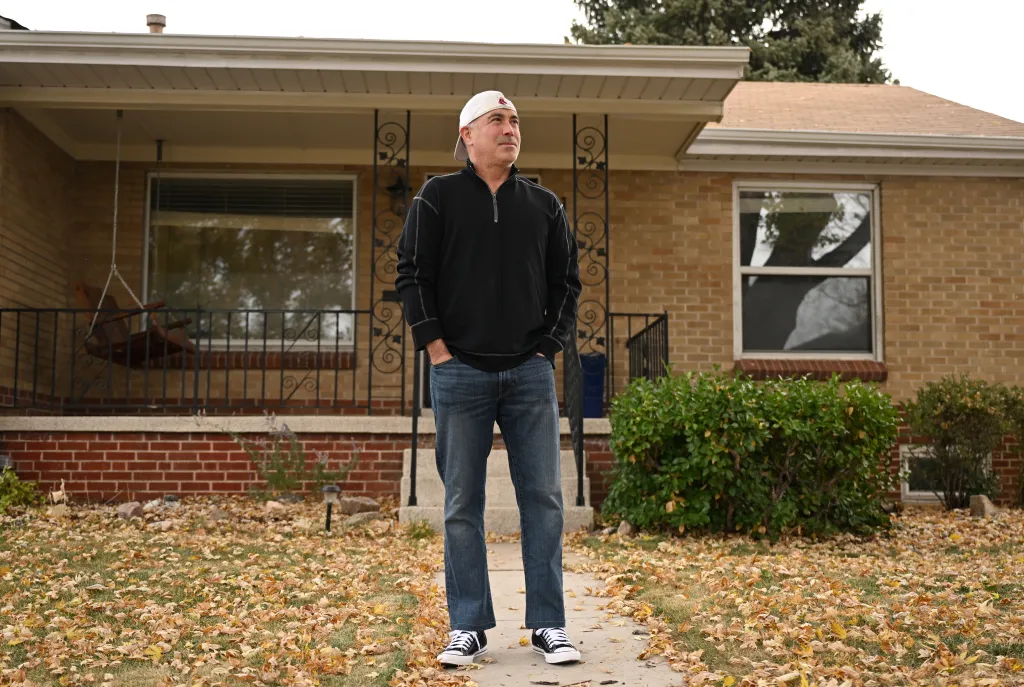Copyright The Denver Post

When a dentist at Lakewood Modern Dentistry told Hailey Hernandez she needed a deep cleaning, a root canal and a crown to treat extensive gum disease and other problems, alarm bells went off in her head. “I knew that I was taking care of my teeth and there’s no way I have gum disease,” she said. Her old dentist in Arizona said she was right when she went back for a second opinion, the Golden resident said. Her suspicions rose further when two friends told her they also received gum disease diagnoses from Lakewood Modern Dentistry and were told they’d need deep cleanings, root canals and crowns. “There’s no way,” she said. “It just does not sound right at all.” One of those friends, Avery Huffer, said she, too, had been surprised to hear she needed such extensive treatment, but went forward with it. When she returned about a year later, the Englewood resident learned she’d need deep cleanings every three months, plus more root canals and crowns — on teeth that weren’t the ones giving her pain. Huffer said she decided not to undergo the additional treatment after speaking with coworkers who were told they needed the same procedure. “Is that just their baseline diagnosis?” Huffer said she wondered. Lakewood Modern Dentistry is one of more than 50 offices in the Denver area affiliated with PDS Health, a Nevada-based practice-management company working with dentists in 16 states. While each practice has independent ownership, they have nearly identical websites, with the same broad-smiling woman on the home page and the same pitch for financing up to $75,000 in dental work, subject to credit approval. The majority of the practices also share a perception among some former patients that dentists and staff exaggerated their oral health problems and recommended unnecessarily invasive treatments. Of the 53 affiliated practices in the Denver area, 40 had online reviews in the last three years alleging their dentists had told patients they needed extensive work, such as deep cleanings or root canals, when they believed a less-invasive alternative would suffice. The Denver Post spoke to six patients, including Hernandez and Huffer, who said PDS-affiliated practices pushed them to pay out-of-pocket for deep cleanings and other invasive work they believe they didn’t need. The five who sought second opinions said they were told their mouths were largely healthy. While the patients who spoke to The Post believed their dentists were upselling them to make more money, the lack of standardization in dentistry creates challenges in trying to parse why two providers might have dramatically different recommendations, experts said. With no clear professional standards and limited pushback from insurers on unnecessary procedures, patients are largely on their own to sort out if a practice is upselling them, said Beth Mertz, a professor at the University of California, San Francisco’s School of Dentistry. They should get a second opinion if a diagnosis and treatment plan seem off, she said. “Dentistry is still the Wild West,” she said. “The whole system is not set up to serve the public particularly well.” PDS Health spokeswoman Ellen Driscoll said the company provides non-clinical support services to independent dental offices, whose owners make treatment decisions based on their patients’ needs. Dentists have a long-standing debate about how best to treat gum disease, which is common and underdiagnosed, she said. Lakewood Modern Dentistry said it uses advanced technology to detect gum disease early, catching problems other dentists might miss. “Periodontal disease is both widespread and often missed in its early stages,” the practice said in a statement. “Our team follows national clinical standards and is committed to preventive care.” Dentists can have good-faith differences of opinion about how aggressively they should manage common conditions such as gum disease, which can cause inflammation that leads to other health problems, said Dr. Brett Kessler, former president of the American Dental Association. Patients need to find a provider whose views are a match for theirs, he said. “How the patient is treated depends on the patient’s goals and the provider’s philosophy, and how they weigh together,” he said. Differences in philosophy and training explain some of the gap in what dentists recommend, but the profit motive is a factor, too, Mertz said. “Secret shopper” studies have shown dentists give radically different recommendations if a person’s dress and demeanor signal they can afford expensive care, she said. “Because dental insurance pays more based on what you do, providers are incentivized to do more,” she said. Pricey deep-gum cleaning Most dental insurance covers two routine cleanings each year, though plans vary in how much they contribute toward deep cleaning and other treatment. Michael Gitomer, of Denver, said the finance person at Edgewater Modern Dentistry and Orthodontics told him he would have to pay $1,000 to $1,500 out-of-pocket for deep cleaning and a crown. Deep-gum cleaning, also known as scaling and root planing, involves removing plaque beneath the gum line in the same way that dental hygienists scrape it off the visible part of the tooth during a routine cleaning. In some cases, dentists also give antibiotics to help root out bacteria that cause gum disease. Gitomer had expected only a $30 co-pay that day, so he asked for a routine cleaning while he considered his options. “They were refusing to give me a regular cleaning unless I paid for all these other things,” he said, though they relented after he “gave them a pretty hard time about it.” His previous dentist didn’t see any need for invasive work, but recommended flossing more often. Edgewater Modern Dentistry said it strives to earn patients’ trust through “clear communication and honest assessments.” “Periodontal disease often advances without pain, which is why we focus on early identification and informed care. Our clinicians are here to listen, explain, and help patients make confident decisions about their oral health,” the practice said in a statement. Duke Harten, of Denver, said he had a similar experience at City Park Dental Group and Orthodontics: The dentist told him he had serious gum disease and needed deep cleanings every three months, which his insurance wouldn’t cover. He was suspicious because his previous dentist never identified any problems, and he looked up the office’s reviews, which seemed to suggest a pattern. A dentist he saw for a second opinion said his gums were healthy, Harten said, and even his records at City Park Dental seemed to contradict the idea that he needed extensive care, saying he had “good oral hygiene” and “no problems noted.” City Park Dental said in a statement that it is committed to clear communication with patients and adheres to best practices for treatment. “When it comes to conditions like periodontal disease, timing and technology can affect what a provider sees, and how they choose to respond. While care approaches may vary between dentists, our goal is always the same: to help patients stay ahead of disease and maintain their long-term health,” the practice’s statement said. ‘They said I needed all this work’ Samantha Nuyen, of Denver, said Highlands Dentists didn’t identify any problems with her mouth on her first two visits, but told her she had multiple cracked teeth on the third. The dentist she saw for a second opinion didn’t find any cracks or other major concerns, she said. When she told her provider at Highlands Dentists about the second opinion, they didn’t offer any explanation for the discrepancy or defend their recommendation, Nuyen said. “They said I needed all this work that I didn’t need,” she said. Highlands Dentists said oral health is deeply connected to the rest of the body’s well-being and it is treated early to prevent bigger problems. “We believe in having honest conversations, answering questions, and making decisions together with our patients to support both their oral health and overall health,” the practice’s statement said. Carlos Paradelo, of Denver, said he had a similar experience. The dentist at Cherry Creek Modern Dentistry told him he needed “deep scaling” because of gum disease, but a provider at another practice said increased attention to flossing would head off any future problems. Cherry Creek Modern Dentistry said it has hundreds of satisfied patients and is committed to detecting oral health problems early. “While we cannot comment on individual cases, our treatment recommendations follow national standards and are supported by advanced technology and interdisciplinary collaboration. We’re committed to helping patients understand their care and welcome thoughtful second opinions as part of that process,” the practice said in a statement. Paradelo said he picked Cherry Creek Modern Dentistry because it was nearby and in his insurance network after he moved to Denver. In the future, he said he plans to check a dentist’s online reviews or ask friends before scheduling an appointment. “I figured, just by virtue of them being in my insurance network, it would be a good practice,” he said.



